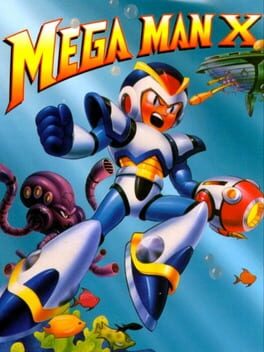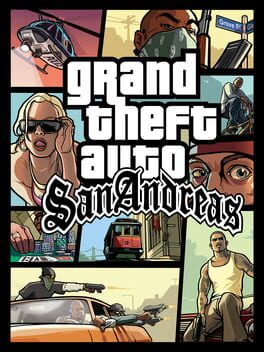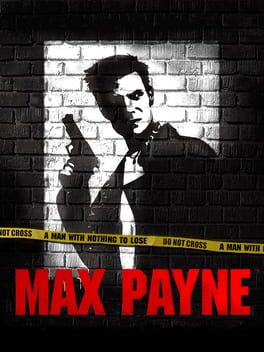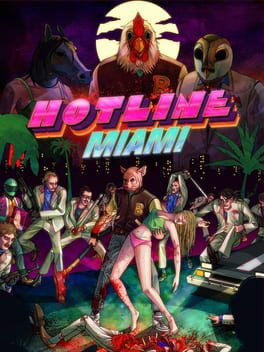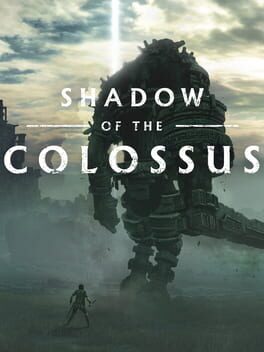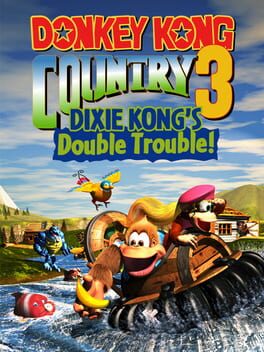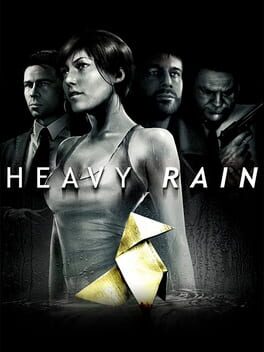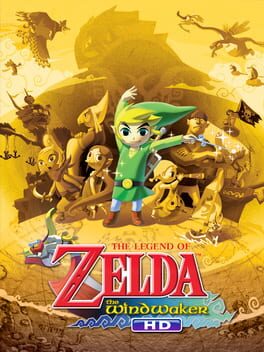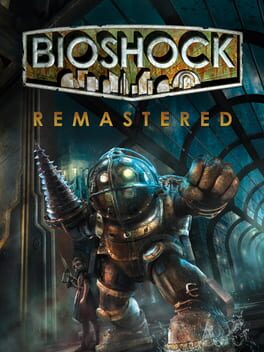Abdulla_Alsaleh
2022
Since I thought that Bloodborne was incredible, my excitement for Elden Ring went from being nonexistent to being palpable very quickly. Although I've only completed one other From Software game before this one, I was still interested in seeing how they would take on the open world genre, as their games are known for taking advantage of their linearity through intricate level design. As it turns out, From Software's games were practically made for this genre, because Elden Ring takes the same design philosophy of their other games and expands on it vastly.
Elden Ring is a massive game in terms of both size and scope, as it features a huge, gorgeous, and varied open world that is filled to the brim with content. In my 59 hours of playing, I feel like I've barely scratched the surface of the Lands Between, as there's a dungeon, sidequest, or boss in every nook and cranny of this game. The combat is also satisfying and feels great, and while I do prefer the faster, more aggressive playstyle that is encouraged in Bloodborne, I was still able to play in a similar fashion to that here in Elden Ring. The amount of variety in the game's weapons, spells, incantations, and armor sets is astounding, and it seems almost guaranteed to make everyone's experience with the game feel unique to their own playstyle.
Since this is a From Software game, it shouldn't be a surprise to find out that Elden Ring is a hard game, and while the difficulty level does feel challenging, but fair for the most part, the second half of the main game took a big dive in that department. Many of those bosses end up killing you in one hit, regardless of how strong your build is, and the levels leading up to them become more concerned with filling the screen with as many enemies as possible rather than being intricately or meaningfully designed. The back half of Elden Ring felt flat out frustrating and unfair a lot of the time, and while it was still satisfying to finally beat those bosses, it didn't really feel like the game was giving me a fair chance. I also thought that Torrent was generally really clunky, as fighting on horseback leads to a lot of missed swings and platforming is an outright gamble. Elden Ring also has a huge issue regarding repeated enemies and bosses, as there are Tree Sentinels and Godskin bosses all over the place, even if they are slightly tweaked with each appearance. Despite all of that, the amount of fun I've had and awe I've felt while playing Elden Ring made me love it regardless, and while it's undeniably flawed, it feels like a complete game changer for open world games as a whole.
Elden Ring is a massive game in terms of both size and scope, as it features a huge, gorgeous, and varied open world that is filled to the brim with content. In my 59 hours of playing, I feel like I've barely scratched the surface of the Lands Between, as there's a dungeon, sidequest, or boss in every nook and cranny of this game. The combat is also satisfying and feels great, and while I do prefer the faster, more aggressive playstyle that is encouraged in Bloodborne, I was still able to play in a similar fashion to that here in Elden Ring. The amount of variety in the game's weapons, spells, incantations, and armor sets is astounding, and it seems almost guaranteed to make everyone's experience with the game feel unique to their own playstyle.
Since this is a From Software game, it shouldn't be a surprise to find out that Elden Ring is a hard game, and while the difficulty level does feel challenging, but fair for the most part, the second half of the main game took a big dive in that department. Many of those bosses end up killing you in one hit, regardless of how strong your build is, and the levels leading up to them become more concerned with filling the screen with as many enemies as possible rather than being intricately or meaningfully designed. The back half of Elden Ring felt flat out frustrating and unfair a lot of the time, and while it was still satisfying to finally beat those bosses, it didn't really feel like the game was giving me a fair chance. I also thought that Torrent was generally really clunky, as fighting on horseback leads to a lot of missed swings and platforming is an outright gamble. Elden Ring also has a huge issue regarding repeated enemies and bosses, as there are Tree Sentinels and Godskin bosses all over the place, even if they are slightly tweaked with each appearance. Despite all of that, the amount of fun I've had and awe I've felt while playing Elden Ring made me love it regardless, and while it's undeniably flawed, it feels like a complete game changer for open world games as a whole.
1993
Back in the 6th grade, I used to play a lot of games on an online emulator that was called nintendoemulator.com or something along those lines. I'm pretty sure that website is gone now due to Nintendo's relentless hunt for emulators, but whenever I had free time during, before, and in between classes, I would go on it to play a game or two for a few minutes. The games I played were mostly NES games like Tetris, Dr. Mario, Mike Tyson's Punch Out!!, and Contra, but I would also occasionally play some SNES games. One of those games was Mega Man X, or rather, the first level of Mega Man X, and I remember liking that level a lot, especially with how it ended. Since I wasn't a big fan of the first Mega Man game, I thought that it would be fun to check out Mega Man X in order to not only see if it was better than the first game in the franchise, but to also see if the rest of the game was as good as that first level.
Mega Man X is short, sweet, and generally pretty solid all around. X himself feels great to control, especially with the upgrades that are unlocked throughout the game, and the levels in which he runs through are not only well designed, but also reward exploration and the player's own curiosity through the hidden secrets and unlockables. The ability to pick levels in the order of your choosing has been a staple of the Mega Man franchise since its inception, and while it does add some replay value to the game, the idea of locking certain abilities that are practically essential to the game's platforming, such as the dash move, to specific levels that someone could end up struggling without until they end up choosing that specific level doesn't really make sense to me.
I did mention that Mega Man X's levels are well designed, but once you get to the levels in Sigma's fortress, I think that they take a bit of a dive, as those four levels seemed to take a cue from the NES games of old by just throwing as much stuff at you as possible. I also wasn't a fan of the use of bosses in the last chunk of the game because, when you're not fighting bosses you already fought, you're fighting bosses that aren't really that interesting or fun to fight. Despite that, I still thought that Mega Man X was a great game, and even with some of its flaws, it was definitely an improvement on the original Mega Man.
Mega Man X is short, sweet, and generally pretty solid all around. X himself feels great to control, especially with the upgrades that are unlocked throughout the game, and the levels in which he runs through are not only well designed, but also reward exploration and the player's own curiosity through the hidden secrets and unlockables. The ability to pick levels in the order of your choosing has been a staple of the Mega Man franchise since its inception, and while it does add some replay value to the game, the idea of locking certain abilities that are practically essential to the game's platforming, such as the dash move, to specific levels that someone could end up struggling without until they end up choosing that specific level doesn't really make sense to me.
I did mention that Mega Man X's levels are well designed, but once you get to the levels in Sigma's fortress, I think that they take a bit of a dive, as those four levels seemed to take a cue from the NES games of old by just throwing as much stuff at you as possible. I also wasn't a fan of the use of bosses in the last chunk of the game because, when you're not fighting bosses you already fought, you're fighting bosses that aren't really that interesting or fun to fight. Despite that, I still thought that Mega Man X was a great game, and even with some of its flaws, it was definitely an improvement on the original Mega Man.
I have been playing Grand Theft Auto: San Andreas for almost four years. It was the first Rockstar game I ever owned, as I was lucky enough to buy the game on the PlayStation store before it got removed in favor of the disaster that was the recent "Definitive" remaster of the PS2 trilogy. It's a game that means a lot to me while also having flaws that are so glaring and unavoidable that my nostalgia for the game can't entirely look past them, and that weird, conflicted view of the game that I have makes me consider it to be a flawed masterpiece of sorts.
It honestly blows my mind that Grand Theft Auto: San Andreas came out in 2004, because it has an open world that is more detailed and has more care put into it than most of the open world games that have come out in recent years. There's a staggering amount of things to do aside from the usual Grand Theft Auto rampages that the series is known for, and it's easy to get lost in a world that's as huge and varied as this for hours on end. Not only that, but there is a near endless amount of cheat codes that make the game even more fun, and flying around Los Santos in a car while blasting some timeless 90s hip-hop is one of my most cherished video game experiences.
It has taken me four years to beat Grand Theft Auto: San Andreas, and the reason is that, unfortunately, the story flat out sucks. To be fair, it does start out pretty good, but after that first big plot twist, the actually interesting elements of the story are put on hold in favor of running a bunch of boring, tedious errands for unfunny one-note characters that you couldn't care less about, and these missions are made even worse by their easily broken scripting and a complete lack of checkpoints. If the story stayed in Grove Street and focused on CJ and his loved ones, then the game would've been perfect, but we're instead left with a series of vignettes that all feel like they're from different games. I still love Grand Theft Auto: San Andreas and I think it deserves its title as a landmark in the history of video games, but its lackluster story and missions are what kept this game from being one of my all time favorites.
It honestly blows my mind that Grand Theft Auto: San Andreas came out in 2004, because it has an open world that is more detailed and has more care put into it than most of the open world games that have come out in recent years. There's a staggering amount of things to do aside from the usual Grand Theft Auto rampages that the series is known for, and it's easy to get lost in a world that's as huge and varied as this for hours on end. Not only that, but there is a near endless amount of cheat codes that make the game even more fun, and flying around Los Santos in a car while blasting some timeless 90s hip-hop is one of my most cherished video game experiences.
It has taken me four years to beat Grand Theft Auto: San Andreas, and the reason is that, unfortunately, the story flat out sucks. To be fair, it does start out pretty good, but after that first big plot twist, the actually interesting elements of the story are put on hold in favor of running a bunch of boring, tedious errands for unfunny one-note characters that you couldn't care less about, and these missions are made even worse by their easily broken scripting and a complete lack of checkpoints. If the story stayed in Grove Street and focused on CJ and his loved ones, then the game would've been perfect, but we're instead left with a series of vignettes that all feel like they're from different games. I still love Grand Theft Auto: San Andreas and I think it deserves its title as a landmark in the history of video games, but its lackluster story and missions are what kept this game from being one of my all time favorites.
2015
A lot of you might be wondering why it's taken me so long to put out another game review and the answer's pretty simple: it's just taken me this long to beat Yakuza 0. There is so much going on here that it feels like a miracle that something like this even exists, as it does everything that it sets out to do perfectly. For starters, Yakuza 0 showcases some of the best tonal shifts I've ever seen in a video game. It constantly goes from being gritty to being goofy and hilarious to even being emotional and heartfelt, and not once do any of these shifts in tone and mood feel inappropriate.
The game's writing in general is just amazingly compelling and smart, and that applies to both the complex and layered plot of the main story and the smaller morality tales that play out in the side quests, and all of these contribute to the brilliantly intertwined character arcs of Kazuma Kiryu and Goro Majima. While the main story is a big part of what makes Yakuza 0 so amazing, this game and the franchise it belongs to are also very well known for the abundance of things to do outside of all of that. Not only is there a staggering amount of minigames scattered across both Kamurocho and Sotenbori, but the amount of detail and effort put into them makes it impossible to not get distracted from the main story. I can't believe that there is a whole series of games like this, let alone just one of them, because Yakuza 0 is one of the very best games I've ever had the pleasure of experiencing, and this entry alone puts the Grand Theft Auto series to shame.
The game's writing in general is just amazingly compelling and smart, and that applies to both the complex and layered plot of the main story and the smaller morality tales that play out in the side quests, and all of these contribute to the brilliantly intertwined character arcs of Kazuma Kiryu and Goro Majima. While the main story is a big part of what makes Yakuza 0 so amazing, this game and the franchise it belongs to are also very well known for the abundance of things to do outside of all of that. Not only is there a staggering amount of minigames scattered across both Kamurocho and Sotenbori, but the amount of detail and effort put into them makes it impossible to not get distracted from the main story. I can't believe that there is a whole series of games like this, let alone just one of them, because Yakuza 0 is one of the very best games I've ever had the pleasure of experiencing, and this entry alone puts the Grand Theft Auto series to shame.
2001
I've been meaning to get into the Max Payne trilogy for a while. Whenever I thought about buying it, I always ended up going with some other option, and I don't know why it took me so long to get around to buying it. I bought Max Payne two days ago, along with Yakuza 0, and even though I just beat it a few minutes ago, I can't wait to get back to the game and beat it on Hard-Boiled mode.
Max Payne is a fairly short game whose levels are mostly pretty similar in terms of gameplay, but there's a reason why this game is regarded as the classic that it is. For starters, I loved this game's atmosphere. The grimy, snowed-in New York setting and terrific voice acting from James McCaffrey made me feel like I was playing through a gritty, no-nonsense crime novel, and it also worked really well with the comic panel cutscenes, introspective storytelling, and especially the nightmarish and unnerving dream sequences. This brass knuckle atmosphere meshes brilliantly with the gameplay, which clearly (and proudly) takes inspiration from filmmakers like John Woo and the Wachowskis with its bullet time and shootdodge mechanics.
I generally loved Max Payne, but there's one level in the game that made me consider lowering my score entirely. While I didn't mind the game's lack of checkpoints, as I thought that it made the gunfights much more engaging, I was especially annoyed and frustrated by the level "Stone-Cold Dead", which went on for almost ten minutes and had the unbearable elevator sequence. That level wasn't enough to fully worsen my thoughts on Max Payne, though, as I thought that it was a fantastic game that makes me really excited to check out the other two games in the trilogy.
Max Payne is a fairly short game whose levels are mostly pretty similar in terms of gameplay, but there's a reason why this game is regarded as the classic that it is. For starters, I loved this game's atmosphere. The grimy, snowed-in New York setting and terrific voice acting from James McCaffrey made me feel like I was playing through a gritty, no-nonsense crime novel, and it also worked really well with the comic panel cutscenes, introspective storytelling, and especially the nightmarish and unnerving dream sequences. This brass knuckle atmosphere meshes brilliantly with the gameplay, which clearly (and proudly) takes inspiration from filmmakers like John Woo and the Wachowskis with its bullet time and shootdodge mechanics.
I generally loved Max Payne, but there's one level in the game that made me consider lowering my score entirely. While I didn't mind the game's lack of checkpoints, as I thought that it made the gunfights much more engaging, I was especially annoyed and frustrated by the level "Stone-Cold Dead", which went on for almost ten minutes and had the unbearable elevator sequence. That level wasn't enough to fully worsen my thoughts on Max Payne, though, as I thought that it was a fantastic game that makes me really excited to check out the other two games in the trilogy.
2012
Writing an in-depth review of Hotline Miami is somewhat difficult for me, because I'm pretty sure that anything I'll write will end up being longer than the game itself. I bought this game at around 8 PM last night and got to Chapter 11 right before I went to bed, and I then went ahead and beat the game shortly after having breakfast. The short length is anything but a downside, though, because I can see myself playing Hotline Miami over and over again in the near future.
Despite the top-down perspective and 16-bit graphics, I'd still consider Hotline Miami to be one of the most violent and visceral games I've ever played. The one-hit deaths that apply to both you and your enemies add to the game's brutality, along with a synthwave style that is clearly inspired by filmmakers like Nicolas Winding Refn. It's both frustrating to play and satisfying to master, and the abundance of weapons makes each stage feel like they can be played in a bunch of different ways. Not only is Hotline Miami a knockout from a gameplay perspective, but it also has a surprisingly well told story, as Jacket's downward spiral is very compelling and it also compliments the game's unusual structure.
Hotline Miami is one of those games that you don't want to put down once you pick it up, and the blend of challenging, yet addictive gameplay and a great story makes it an amazing game that I can't wait to 100% complete someday.
Despite the top-down perspective and 16-bit graphics, I'd still consider Hotline Miami to be one of the most violent and visceral games I've ever played. The one-hit deaths that apply to both you and your enemies add to the game's brutality, along with a synthwave style that is clearly inspired by filmmakers like Nicolas Winding Refn. It's both frustrating to play and satisfying to master, and the abundance of weapons makes each stage feel like they can be played in a bunch of different ways. Not only is Hotline Miami a knockout from a gameplay perspective, but it also has a surprisingly well told story, as Jacket's downward spiral is very compelling and it also compliments the game's unusual structure.
Hotline Miami is one of those games that you don't want to put down once you pick it up, and the blend of challenging, yet addictive gameplay and a great story makes it an amazing game that I can't wait to 100% complete someday.
Unlike my other reviews, I don't have any story to tell about how I found out about Shadow of the Colossus, aside from just generally knowing that it is a game that is known for great boss battles and terrible controls. That's all I was expecting when I first booted up the game, but what I got was so much more than that.
Right off the bat, one of the most notable things about Shadow of the Colossus is its one-of-a-kind atmosphere. The gorgeous visuals and music make playing the game and traversing the decaying landscapes feel melancholic and beautiful, along with a sense of scale that simultaneously feels small and grandiose. That sense of melancholic beauty is also carried over to the terrific boss battles, as their unique design (Both visually speaking and mechanically speaking) makes fighting them feel fun while also making you feel sorry for killing off the only life that is left in this world. I was surprised with just how well Shadow of the Colossus managed to tell its story, as it threw a lot of great emotional punches while never feeling stagnant or losing its steam.
A lot of people have mentioned how terrible the controls are, and while they are undeniably janky and occasionally frustrating, it didn't detract from my experience with the game very much. If anything, it added to the satisfaction of beating the colossi and having a sense of mastery over the controls by the end of the game, at least for me. Overall, Shadow of the Colossus was a phenomenal and wholly unique game, and I'm now even more excited to eventually play Ico thanks to it.
Right off the bat, one of the most notable things about Shadow of the Colossus is its one-of-a-kind atmosphere. The gorgeous visuals and music make playing the game and traversing the decaying landscapes feel melancholic and beautiful, along with a sense of scale that simultaneously feels small and grandiose. That sense of melancholic beauty is also carried over to the terrific boss battles, as their unique design (Both visually speaking and mechanically speaking) makes fighting them feel fun while also making you feel sorry for killing off the only life that is left in this world. I was surprised with just how well Shadow of the Colossus managed to tell its story, as it threw a lot of great emotional punches while never feeling stagnant or losing its steam.
A lot of people have mentioned how terrible the controls are, and while they are undeniably janky and occasionally frustrating, it didn't detract from my experience with the game very much. If anything, it added to the satisfaction of beating the colossi and having a sense of mastery over the controls by the end of the game, at least for me. Overall, Shadow of the Colossus was a phenomenal and wholly unique game, and I'm now even more excited to eventually play Ico thanks to it.
2015
Back in 2016, I got a PS4 as a birthday gift, and some of my classmates got me games to play on it, with Dark Souls III being one of them. After being unable to get into it for almost two years, I gave it to a friend who then snapped the disc in half out of frustration. Since then, I’ve been meaning to give From Software’s games another shot, so I decided to pick up Bloodborne. At first, I considered quitting the game, but after beating Father Gascoigne for the first time, I never felt more satisfied in my life and I understood the genius of Bloodborne instantly.
Bloodborne is one of the most challenging, frustrating, but also immensely rewarding games I’ve ever played. The brilliant level design and lack of checkpoints encourages exploration and the memorization of enemy placements and attack patterns, which makes the aggressive, yet strategic combat more fun. The Victorian setting mixed with Lovecraftian creature designs not only made the game look gorgeous, but it also gave Bloodborne a uniquely macabre and gothic atmosphere. Although I still need to do more reading about the game’s lore, the tidbits that I got from item descriptions and NPCs were fascinating, and even when I didn’t fully understand what was going on, the story still managed to leave me in awe at times.
While it did take me a while to appreciate and love Bloodborne as much as I do now, I consider it to be one of the best games I’ve ever played, and while it might be a while before I pick up my next From Software game, I can’t wait to see what else they have to offer.
Bloodborne is one of the most challenging, frustrating, but also immensely rewarding games I’ve ever played. The brilliant level design and lack of checkpoints encourages exploration and the memorization of enemy placements and attack patterns, which makes the aggressive, yet strategic combat more fun. The Victorian setting mixed with Lovecraftian creature designs not only made the game look gorgeous, but it also gave Bloodborne a uniquely macabre and gothic atmosphere. Although I still need to do more reading about the game’s lore, the tidbits that I got from item descriptions and NPCs were fascinating, and even when I didn’t fully understand what was going on, the story still managed to leave me in awe at times.
While it did take me a while to appreciate and love Bloodborne as much as I do now, I consider it to be one of the best games I’ve ever played, and while it might be a while before I pick up my next From Software game, I can’t wait to see what else they have to offer.
Since its release, Breath of the Wild has been hailed as one of the greatest games of the 2010s, as well as one of the greatest games ever made, and after two years of playing it, trying to understand the game's ins and outs, and eventually beating it, I guess I can see why. It's an incredibly ambitious game, and its heavy emphasis on exploration and player ingenuity has led to the game touching the hearts of players around the globe. I can't really say that this is what happened to me, though, because while Breath of the Wild is a great game, it's far from perfect.
While this is only the third game in the Zelda series that I've completed, Breath of the Wild is probably the closest that a Zelda game has gotten to replicating the feel of The Legend of Zelda on the NES, as both games rely heavily on players making their own discoveries and playing the game at their own pace, although I think that Breath of the Wild definitely pulled this off in a much smoother way, as I was given at least some sort of direction throughout my playthrough. With most of my positives for the game, though, there are also negatives that are attached to them. For starters, the gameplay and physics engine are both great and clearly well thought out, but having weapons break after about five or ten swings gets old very quickly, and it makes the weapons that are earned after beating a difficult shrine or challenge feel useless. Speaking of the shrines, the fact that they all look and feel exactly the same makes many of my memories of the game feel like a blur, even if the puzzles themselves are good. I thought that the Divine Beast dungeons were great, but the game really needed more of those rather than the same copy-and-paste shrines. I also thought that, while the world is massive and varied in its landscapes, there wasn't much to do aside from finding shrines, Korok seeds, enemy camps, minibosses, and forgettable side quests, which makes exploring feel a lot less exciting than it should be. There are also smaller things, like the bad voice acting and the inability to switch targets while z-targeting, but those are pretty minor issues that I was able to look past.
While Breath of the Wild isn't a perfect game, it should still be remembered for how much it changed up the Zelda formula, and I'm very certain that the upcoming sequel will fix a lot of the issues that I mentioned.
While this is only the third game in the Zelda series that I've completed, Breath of the Wild is probably the closest that a Zelda game has gotten to replicating the feel of The Legend of Zelda on the NES, as both games rely heavily on players making their own discoveries and playing the game at their own pace, although I think that Breath of the Wild definitely pulled this off in a much smoother way, as I was given at least some sort of direction throughout my playthrough. With most of my positives for the game, though, there are also negatives that are attached to them. For starters, the gameplay and physics engine are both great and clearly well thought out, but having weapons break after about five or ten swings gets old very quickly, and it makes the weapons that are earned after beating a difficult shrine or challenge feel useless. Speaking of the shrines, the fact that they all look and feel exactly the same makes many of my memories of the game feel like a blur, even if the puzzles themselves are good. I thought that the Divine Beast dungeons were great, but the game really needed more of those rather than the same copy-and-paste shrines. I also thought that, while the world is massive and varied in its landscapes, there wasn't much to do aside from finding shrines, Korok seeds, enemy camps, minibosses, and forgettable side quests, which makes exploring feel a lot less exciting than it should be. There are also smaller things, like the bad voice acting and the inability to switch targets while z-targeting, but those are pretty minor issues that I was able to look past.
While Breath of the Wild isn't a perfect game, it should still be remembered for how much it changed up the Zelda formula, and I'm very certain that the upcoming sequel will fix a lot of the issues that I mentioned.
Since I loved Donkey Kong Country 2: Diddy's Kong Quest so much, I had a gut feeling that the third installment in the series wouldn't top the second or even the first game. I tried not to go into the game with this mentality, but I just couldn't shake that feeling, and it unfortunately turned out to be true. Even if I wasn't expecting it to be as good as the first two games in the Donkey Kong series, Donkey Kong Country 3: Dixie Kong's Double Trouble! is a huge downgrade in terms of level design and memorability, even if the end result is still a good game.
Donkey Kong Country 3: Dixie Kong's Double Trouble! has the design philosophy of a New Super Mario Bros. game, where all of the game's levels have at least one gimmick in them. While some of the levels in the first two games did have one-off gimmicks, they were far more interesting than what is present here, as many of the gimmicks in this game's levels feel like they were added just to annoy the player rather than to pose any actual challenge. Speaking of which, Donkey Kong Country 3: Dixie Kong's Double Trouble! is way easier than the first two games in the series, and the lowered difficulty combined with the gimmick-heavy level design leads to a generally forgettable experience.
Aside from all of that, there are some positives about the game that remain consistent with what was present in its predecessors. The visuals, sound design, and general atmosphere are still great (Even if the character designs are the worst in the series), and while Eveline Fischer's score isn't nearly as memorable or catchy as David Wise’s work on the first two games, she still did a good job here. Overall, Donkey Kong Country 3: Dixie Kong's Double Trouble! is still a good game, although it's nowhere near as good as its predecessors and I'm much less eager to revisit this game than I am to revisit the first two Donkey Kong games.
Donkey Kong Country 3: Dixie Kong's Double Trouble! has the design philosophy of a New Super Mario Bros. game, where all of the game's levels have at least one gimmick in them. While some of the levels in the first two games did have one-off gimmicks, they were far more interesting than what is present here, as many of the gimmicks in this game's levels feel like they were added just to annoy the player rather than to pose any actual challenge. Speaking of which, Donkey Kong Country 3: Dixie Kong's Double Trouble! is way easier than the first two games in the series, and the lowered difficulty combined with the gimmick-heavy level design leads to a generally forgettable experience.
Aside from all of that, there are some positives about the game that remain consistent with what was present in its predecessors. The visuals, sound design, and general atmosphere are still great (Even if the character designs are the worst in the series), and while Eveline Fischer's score isn't nearly as memorable or catchy as David Wise’s work on the first two games, she still did a good job here. Overall, Donkey Kong Country 3: Dixie Kong's Double Trouble! is still a good game, although it's nowhere near as good as its predecessors and I'm much less eager to revisit this game than I am to revisit the first two Donkey Kong games.
2019
I’ve been meaning to play Disco Elysium for a while now. Pretty much everything about it sounded appealing to me. A dialogue-heavy RPG inspired by my all time favorite game and the writings of Marx and Engels? Count me in! Even knowing all of that, Disco Elysium subverted a lot of my expectations, and as a result, I’ve experienced one of the most well written, engaging, heartfelt, intelligent, and overall best games ever made.
As I’ve said before, the main strength of Disco Elysium lies in its writing, and it’s almost overwhelming how good this game’s writing is. The macabre and fascinating world of Revachol is brought to life thanks to its detailed descriptions and lively characters, as well as the beautiful and unique oil painting artstyle. While I still do think that Planescape: Torment has the best writing in any video game, Disco Elysium is a very, very close second. I also loved how Disco Elysium’s version of perks and traits played into the way that Revachol was perceived by both the protagonist and the player. Rather than using traditional traits like a conventional RPG, the player has to manage 24 different aspects of their brain that are constantly fighting over each other, and that is an unbelievably creative and interesting way of giving the player an understanding of how the protagonist thinks and functions.
There is so much intelligence and beauty present in Disco Elysium, and while I could go on and on about it, I just want to end the review by saying that this is one of the best games I have ever played, and I’m not only incredibly excited to see what else Robert Kurvitz and ZA/UM have to offer, but I’m also excited to read The Sacred and Terrible Air, Kurvitz’s original Revachol-set novel, when it eventually gets translated into English.
As I’ve said before, the main strength of Disco Elysium lies in its writing, and it’s almost overwhelming how good this game’s writing is. The macabre and fascinating world of Revachol is brought to life thanks to its detailed descriptions and lively characters, as well as the beautiful and unique oil painting artstyle. While I still do think that Planescape: Torment has the best writing in any video game, Disco Elysium is a very, very close second. I also loved how Disco Elysium’s version of perks and traits played into the way that Revachol was perceived by both the protagonist and the player. Rather than using traditional traits like a conventional RPG, the player has to manage 24 different aspects of their brain that are constantly fighting over each other, and that is an unbelievably creative and interesting way of giving the player an understanding of how the protagonist thinks and functions.
There is so much intelligence and beauty present in Disco Elysium, and while I could go on and on about it, I just want to end the review by saying that this is one of the best games I have ever played, and I’m not only incredibly excited to see what else Robert Kurvitz and ZA/UM have to offer, but I’m also excited to read The Sacred and Terrible Air, Kurvitz’s original Revachol-set novel, when it eventually gets translated into English.
2010
I have a really, really weird relationship with David Cage and his games. While Detroit: Become Human proved that he can make a good game (Even if that game is incredibly flawed), his design philosophies and self-serious attitude both make him come off as a guy who's wallowing in his own pretentiousness. Despite that, I think that his games are unique and interesting, flawed as they may be.
Before I go any further, I need to make this crystal clear: Heavy Rain is a terrible game. It's a sappy and melodramatic mess that takes itself way too seriously, and it's impossible to take the game seriously when pretty much all of the game's technical aspects are awful. I rarely rag on a game's graphics, but when your game is 95% cutscenes, 4% button prompts and QTEs, and 1% walking around, the least you could have done was not make the game's world and characters look so lifeless and robotic. The voice acting is also terrible, with line deliveries ranging from wooden and stilted to overblown and unconvincing.
While all of these aspects make Heavy Rain an awful game, I also think that they make it one of the most unintentionally hilarious games I've ever played. While the story was serviceable, I wanted to keep playing just to see how badly the game could keep failing at trying to tell its story, and because of that, I was pretty much never bored throughout my playthrough. If I were to rate this game objectively, I'd give it a 2/10, but I think it would be fair to give the game a 4/10 since it was so entertaining, albeit for the wrong reasons.
Before I go any further, I need to make this crystal clear: Heavy Rain is a terrible game. It's a sappy and melodramatic mess that takes itself way too seriously, and it's impossible to take the game seriously when pretty much all of the game's technical aspects are awful. I rarely rag on a game's graphics, but when your game is 95% cutscenes, 4% button prompts and QTEs, and 1% walking around, the least you could have done was not make the game's world and characters look so lifeless and robotic. The voice acting is also terrible, with line deliveries ranging from wooden and stilted to overblown and unconvincing.
While all of these aspects make Heavy Rain an awful game, I also think that they make it one of the most unintentionally hilarious games I've ever played. While the story was serviceable, I wanted to keep playing just to see how badly the game could keep failing at trying to tell its story, and because of that, I was pretty much never bored throughout my playthrough. If I were to rate this game objectively, I'd give it a 2/10, but I think it would be fair to give the game a 4/10 since it was so entertaining, albeit for the wrong reasons.
Like I said in my review of the first Zelda game, I've tried a few Zelda games in the past, but whenever I came back to them, I was completely lost. The Wind Waker HD was one of those games, and it was also the game that came with my Wii U back when I got it in 2015, along with Super Smash Bros. for Wii U. Once I got the hang of the game after recently picking up where I left off, it was pretty hard for me to put down, because The Wind Waker HD is an amazing game with a lot to offer.
I'm very new to the Zelda series, but out of the few Zelda games that I've tried out and even the ones I'm currently playing, none of them have really captured the sense of adventure that The Wind Waker HD managed to do so effortlessly. Sailing around the map and finding items and dungeons is a lot of fun, and the game's main dungeons are especially great. I also thought that this version of The Wind Waker looked absolutely gorgeous. While the Gamecube version is a good looking game that has aged well thanks to its cel shaded artstyle, The Wind Waker HD looks far better, in my opinion.
There are still a ton of Zelda games that I haven't played or haven't completed, but I'm not sure if I'll enjoy them nearly as much as I enjoyed The Wind Waker HD.
I'm very new to the Zelda series, but out of the few Zelda games that I've tried out and even the ones I'm currently playing, none of them have really captured the sense of adventure that The Wind Waker HD managed to do so effortlessly. Sailing around the map and finding items and dungeons is a lot of fun, and the game's main dungeons are especially great. I also thought that this version of The Wind Waker looked absolutely gorgeous. While the Gamecube version is a good looking game that has aged well thanks to its cel shaded artstyle, The Wind Waker HD looks far better, in my opinion.
There are still a ton of Zelda games that I haven't played or haven't completed, but I'm not sure if I'll enjoy them nearly as much as I enjoyed The Wind Waker HD.
2016
BioShock has been hailed as one of the greatest games ever made, and when I first tried it, I didn't really see why. I didn't play the game for six months, and after being unable to get back into it, I made a new save around a week or two ago and fell in love with it. My appreciation for BioShock grew exponentially, and I'm really, really glad that I gave the game a second chance.
The strongest aspect of BioShock is its atmosphere. Rapture is an incredibly fascinating setting, with tons of lore and complex characters, and this already interesting setting is made even better thanks to its creepy, atmospheric sound design and beautifully unique art direction. Although it took me a while to get used to BioShock's gunplay, I loved how plasmids were implemented, especially with how they worked with elements from the environment, which makes each level seem less like just a simple area filled with enemies and more like a part of a dilapidated city.
Again, I'm really glad that I made that new save, because if I didn't, I wouldn't have been able to appreciate BioShock nearly as much as I do now.
The strongest aspect of BioShock is its atmosphere. Rapture is an incredibly fascinating setting, with tons of lore and complex characters, and this already interesting setting is made even better thanks to its creepy, atmospheric sound design and beautifully unique art direction. Although it took me a while to get used to BioShock's gunplay, I loved how plasmids were implemented, especially with how they worked with elements from the environment, which makes each level seem less like just a simple area filled with enemies and more like a part of a dilapidated city.
Again, I'm really glad that I made that new save, because if I didn't, I wouldn't have been able to appreciate BioShock nearly as much as I do now.
1986
I have something to confess: I’ve never actually beaten a Zelda game before. I’ve played a few of them, like The Wind Waker HD and Twilight Princess, but what would usually happen with those games is that I’d play for a while, come back to it after a few months and end up being completely lost. Although I’ve gotten back into The Wind Waker HD and I’m currently having a lot of fun with it, the Zelda game that I’ve always wanted to beat was the original one on the NES.
The Legend of Zelda is pretty much impossible to beat without a guide. There are so many cryptic hints that it’s incredibly easy to miss items that are required to beat the game because you had to bomb a very specific rock or burn a very specific bush to get to those items. Although exploring the world for the sake of exploring it can be fun, you’re bound to end up having phrases like “WHERE DO I GO?” and “WHAT DO I DO?” echoing in your head throughout your playthrough. The most consistently fun part of this game would be the dungeons, and while there are enemies that eventually become really annoying to fight, these dungeons are still fun.
Overall, The Legend of Zelda is a fun time that’s worth playing whether you’re a fan of the Zelda series or not, but the cryptic design and annoying enemies makes it clear that this was one of the earlier games on the NES.
The Legend of Zelda is pretty much impossible to beat without a guide. There are so many cryptic hints that it’s incredibly easy to miss items that are required to beat the game because you had to bomb a very specific rock or burn a very specific bush to get to those items. Although exploring the world for the sake of exploring it can be fun, you’re bound to end up having phrases like “WHERE DO I GO?” and “WHAT DO I DO?” echoing in your head throughout your playthrough. The most consistently fun part of this game would be the dungeons, and while there are enemies that eventually become really annoying to fight, these dungeons are still fun.
Overall, The Legend of Zelda is a fun time that’s worth playing whether you’re a fan of the Zelda series or not, but the cryptic design and annoying enemies makes it clear that this was one of the earlier games on the NES.

